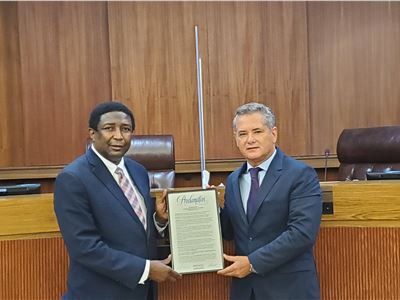Researchers say the amount of physical activity undertaken by children at the age of 11 was linked to academic performance several years later, with girls doing better in science as a result.
The improvements were sustained over the long term, with the findings pointing to a dose-response effect: the more intensive exercise was taken, the greater the impact on test results.
If confirmed, this could have implications for public health and education policy, Researchers said.
The research involved tracking the long term health of around 14,000 children born in the UK between 1991 and 1992 in the South West of England.
Duration and intensity of the children’s daily physical activity levels were measured for periods of between three and seven days, when they were aged 11, using a device called an accelerometer, worn on an elasticated belt.
The children’s academic performance in English, maths, and science was then formally assessed at the ages of 11 (compulsory national test key stage 1), 13 (compulsory national test, key stage 2), and 15/16 (General Certificate of Secondary Education; GCSE; key stage 4).
Analysis showed that Physical activity benefited girls’ performance in science, in particular.
By the age of 15/16 GCSE exam results also showed a link to exercise, with an increase in performance for every additional 17 minutes/day (boys) and 12 minutes/day (girls) spent doing more intensive exercise at the age of 11.
Once again, girls’ science results seemed to benefit the most, say the researchers from the Universities of Strathclyde and Dundee, in Scotland, and Bristol.
They took into account factors likely to influence academic attainment, such as birthweight, mother’s age at delivery, oily fish intake and smoking during the pregnancy.
The study says: "This is an important finding, especially in light of the current UK and European Commission policy aimed at increasing the number of females in science subject".
It could be a chance finding, they add, but suggest there may be gender differences in the impact of physical activity on the brain.
Chris McGovern, chairman of the Campaign for Real Education, said physical activity in schools worked in tandem with academic classes.
He said: "Physical activity helps children to concentrate, and for that reason alone even playtime in primary schools is important. It’s not only physical exercise, with team games, gymnastics and other sport, that’s vital, drama and music also help children’s performance in other subjects. Often the curriculum is too narrowly focused on tests when the evidence shows that academic achievement and fitness work together”.
- Tags: Researchers Bristol and Scotland British Journal of Sports Medicine physical activity children_age_11 academic performance girls_better in science public health education policy 14 000 children born in the UK 1991_1992 South West of England English maths science compulsory_national_test General Certificate of Secondary Education GCSE Universities of Strathclyde Dundee Scotland Bristol Academic_attainment birthweight mother’s age oily fish smoking_during_pregnancy current_UK_and_European_Commission_policy gender_differences brain Chris McGovern chairman_Campaign_Real_Education playtime_in_primary_schools team games gymnastics other sport drama music curriculum academic_achievement fitness
- Categories: Arts Business Culture Education Good News Healthy Living Life & Style Parents Politics School Science Sports Tech Travel Women









































